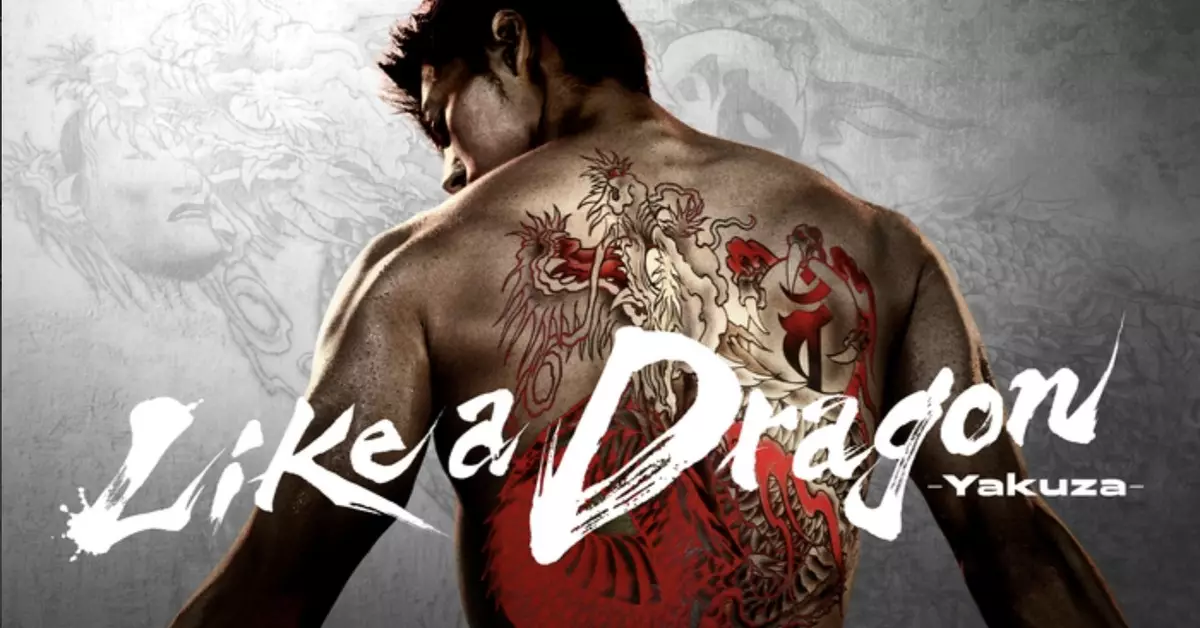As the realm of video game adaptations continues to expand, Amazon Prime Video’s “Like a Dragon: Yakuza” presents a distinct take that may not align with hardcore fans of the franchise but provides a captivating viewing experience nonetheless. It’s essential to approach this series with an understanding that it diverges from traditional adaptations, opting instead for a unique storytelling strategy that immerses viewers in a dual-timeline narrative.
In the lead role, Ryoma Takeuchi portrays Kazuma Kiryu, a character rooted deeply in the Yakuza universe yet portrayed with fresh perspectives. For those familiar with the Yakuza video games, expectations may skew toward an exact representation of the source material. However, viewers looking for a faithful replication of the games’ narratives might be guessing at their disappointment. The true merit of “Like a Dragon” lies in its ability to stand independently, weaving a complex story that simultaneously respects its gaming origins while striving for something wholly original.
The series ingeniously uses two timelines—1995 and 2005—to encapsulate the intricate layers of Kiryu’s life. The ability to juxtapose Kiryu’s report of his early life filled with kinship and yakuza camaraderie against the bleak aftermath of betrayal and loss a decade later creates a duality that keeps the audience engaged. This narrative structure not only enriches character development but also invites viewers to piece together Kiryu’s tragic arc themselves, akin to a puzzle with missing pieces.
The dramatic tension successfully stems from these chronological shifts. In earlier episodes, Kiryu enjoys the support and guidance of father figures and a tight-knit family. The later timeline starkly contrasts this backdrop of warmth, showcasing a man burdened with the haunting label of “oyagoroshi” — a killer of father figures. Such storytelling decisions provoke viewers to reflect on how time shapes identities and alters relationships, demonstrating the series’ depth beyond mere action sequences common in gangster narratives.
Shocking Violence Versus Intended Dramatics
One of the standout features of “Like a Dragon” is its portrayal of violence—ubiquitous and unflinching. Unlike the games, where violence unfolds in a manner that seems more choreographed and stylized, the show’s approach feels raw and unsettling. The series embraces brutal outcomes, vividly capturing the perilous nature of yakuza life. This contrasts starkly with the somewhat comedic and exaggerated silliness often found in the video game series, such as over-the-top brawls against outlandish foes.
While the decision to amp up the violence sets a grim tone, it also risks overshadowing the character-led narrative. What could result in a rich examination of identity and morality occasionally flirts with the pitfalls of simply being a violent spectacle. Viewers may savor thrilling moments; however, the lack of lighter, comical interjections could lead to a fatigue for those seeking a more balanced pacing. Striking a meticulous balance between drama and humor can be especially challenging for adaptations that wish to maintain the essence of their source.
As “Like a Dragon” progresses, its reliance on familiar story elements may feel repetitive to those acquainted with the games. Although attempting to introduce new characters and remixed plot points might initially seem engaging, it often reverts to motifs already explored within the franchise. The balance between reinventing the tale and preserving continuity poses its challenges, leading to some narrative elements appearing lackluster or redundant.
In comparison, other adaptations, such as Paramount’s “Halo,” succeed through innovative character interpretations set against new narratives that breathe life into the established universe. “Like a Dragon”, while building intrigue through added layers, frequently opts for breadcrumbs of nostalgia rather than comprehensive storytelling innovation.
“Like a Dragon: Yakuza” ventures to explore the fractured life of Kazuma Kiryu through a fresh lens that simultaneously honors its roots while stepping away from the conformity of its predecessors. This adaptation may not resonate entirely with die-hard fans hoping for a perfect mirroring of the original Yakuza series. Still, it successfully encapsulates the essence of dual storytelling, grappling with themes of loss, identity, and the passage of time.
Ultimately, while “Like a Dragon” may not eclipse the thrilling experience of gameplay, it succeeds in crafting a narrative bold enough to engage a wider audience, even amidst its contradictory charms. In an era of scattered adaptations, the willingness to diverge from expectations may hold the key to revitalizing how we perceive stories from our beloved games.

